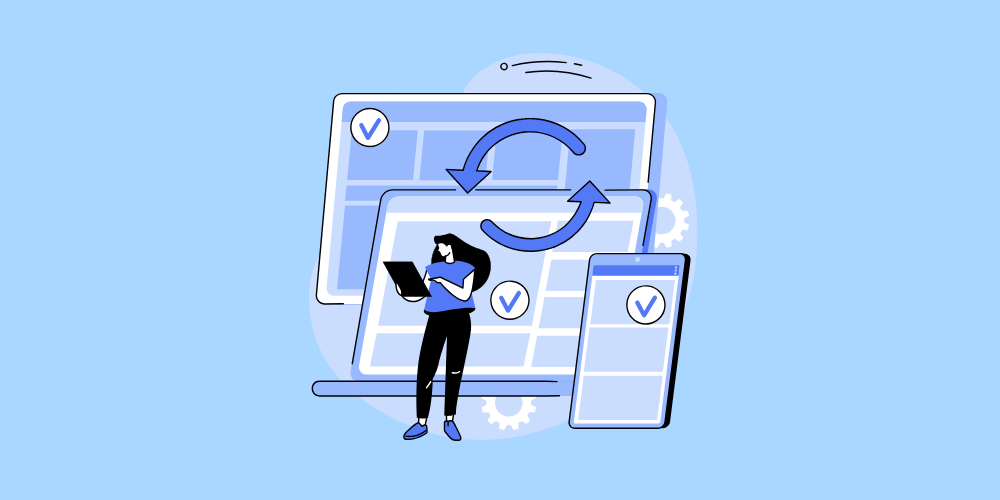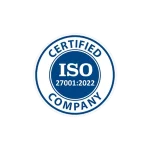Last Updated on 1 year ago by
Developing a successful B2B digital marketing strategy requires a thorough understanding of your target audience, clear objectives, and the right tactics to achieve those goals. Leveraging the expertise of a growth hacking agency can significantly enhance your strategy by providing innovative solutions and rapid experimentation to drive growth.
Understanding Your Target Audience
To create an effective B2B digital marketing strategy, it is crucial to have a deep understanding of your target audience. This involves identifying the needs, preferences, and pain points of your potential customers. By doing so, you can tailor your marketing efforts to meet their specific requirements and build strong relationships.
Conducting Market Research
Market research is the foundation of understanding your target audience. It involves collecting data on industry trends, competitor strategies, and customer behavior. This information helps in creating buyer personas, which are detailed profiles of your ideal customers, and guides your marketing strategy.
Segmenting Your Audience

Audience segmentation allows you to categorize your potential customers into distinct groups based on shared characteristics. This segmentation can be based on factors such as industry, company size, job role, and purchasing behavior. By segmenting your audience, you can deliver personalized and relevant content that resonates with each group.
Setting Clear Objectives
Having clear and measurable objectives is essential for the success of your B2B digital marketing strategy. These objectives should align with your overall business goals and provide a roadmap for your marketing efforts.
Defining Key Performance Indicators (KPIs)
KPIs are specific metrics used to evaluate the effectiveness of your marketing activities. Common KPIs for B2B digital marketing include lead generation, conversion rates, website traffic, and engagement levels. Setting KPIs helps in tracking progress and making data-driven decisions.
Establishing a Timeline

A well-defined timeline outlines the milestones and deadlines for achieving your marketing objectives. It ensures that your team stays focused and on track, and allows for timely adjustments to your strategy based on performance.
Crafting a Compelling Value Proposition
A compelling value proposition clearly communicates the unique benefits of your products or services to your target audience. It differentiates your brand from competitors and convinces potential customers to choose your offerings.
Highlighting Unique Selling Points (USPs)
Your USPs are the distinct features and benefits that set your products or services apart from the competition. Emphasizing these points in your marketing messages helps in attracting and retaining customers. In a B2B digital marketing strategy, clearly communicating your USPs is crucial for differentiating your brand in a crowded market. By showcasing what makes your offerings unique, you can capture the attention of potential clients and convince them of your value. This can involve highlighting specific features, demonstrating case studies, or sharing customer testimonials that underscore your strengths. Integrating your USPs into all aspects of your B2B digital marketing strategy ensures a consistent and compelling message that resonates with your target audience.
Creating Engaging Content

Content is a critical component of your value proposition. High-quality, informative, and engaging content educates your audience about your offerings and addresses their pain points. This can include blog posts, whitepapers, case studies, and videos. In a B2B digital marketing strategy, content must not only inform but also engage and convert. Developing a robust content strategy involves identifying key topics that matter to your audience, creating valuable resources, and distributing them across multiple channels. By aligning your content with your B2B digital marketing strategy, you can drive traffic, generate leads, and nurture relationships with potential clients. Engaging content also boosts your SEO efforts, improving your visibility and authority in the industry.
Leveraging B2B SEO
Search engine optimization (SEO) is vital for improving the visibility of your website and attracting organic traffic. Implementing effective B2B SEO strategies ensures that your target audience can find your content easily. In a B2B digital marketing strategy, SEO involves both on-page and off-page tactics to enhance your search engine rankings. By optimizing your website’s structure, meta tags, and content, you make it easier for search engines to understand and rank your pages. Additionally, focusing on B2B-specific keywords helps you attract the right audience, those who are actively searching for solutions like yours. A well-executed B2B SEO strategy can significantly boost your online presence and drive high-quality leads to your business.
Optimizing On-Page Elements

On-page SEO involves optimizing individual web pages to rank higher in search engine results. This includes using relevant keywords, optimizing meta tags, and ensuring a user-friendly website structure. As part of a B2B digital marketing strategy, on-page optimization ensures that your content is easily discoverable by search engines and provides a seamless experience for users. This involves conducting thorough keyword research to identify the terms your target audience uses, incorporating these keywords naturally into your content, and optimizing title tags, headers, and image alt texts. A well-structured website not only improves your search engine rankings but also enhances user engagement and conversion rates.
Building High-Quality Backlinks
Backlinks from reputable websites enhance your site’s authority and improve its search engine ranking. Developing a backlink strategy involves creating valuable content that others want to link to and reaching out to industry influencers for collaborations. In a B2B digital marketing strategy, acquiring high-quality backlinks is essential for establishing your brand’s credibility and authority. This can be achieved through guest blogging, creating shareable infographics, and engaging in strategic partnerships. By focusing on building a diverse and authoritative backlink profile, you can boost your website’s SEO performance and attract more organic traffic. Effective backlink building is a long-term investment that pays off by enhancing your overall digital marketing efforts.
Utilizing Omnichannel Marketing
Omnichannel marketing provides a seamless customer experience across various channels and touchpoints. It ensures that your brand message is consistent and unified, regardless of where your audience interacts with your brand.
Integrating Digital Channels
Integrating multiple digital channels, such as social media, email marketing, and paid advertising, creates a cohesive marketing strategy. This integration allows for better tracking of customer interactions and provides a holistic view of your marketing efforts.
Personalizing Customer Interactions
Personalization is key to engaging your audience and delivering relevant content. By leveraging data and analytics, you can tailor your marketing messages to meet the specific needs and preferences of your customers.
Measuring and Analyzing Performance

Regularly measuring and analyzing the performance of your B2B digital marketing strategy is crucial for continuous improvement. It helps in identifying what works and what needs adjustment.
Using Analytics Tools
Analytics tools provide valuable insights into the performance of your marketing campaigns, which are essential for refining your B2B digital marketing strategy. Tools like Google Analytics, HubSpot, and SEMrush help in tracking website traffic, user behavior, and conversion rates. By understanding how visitors interact with your site and which pages generate the most engagement, you can make informed decisions to optimize your B2B digital marketing strategy. These tools also allow you to monitor key metrics such as bounce rates, session durations, and conversion paths, helping you identify areas that need improvement and opportunities for growth. Integrating these insights into your B2B digital marketing strategy ensures that your campaigns are data-driven and results-oriented.
Conducting A/B Testing
A/B testing involves comparing two versions of a webpage or marketing asset to determine which one performs better. This method is a crucial component of any B2B digital marketing strategy, as it helps in optimizing your marketing efforts and improving overall effectiveness. By testing different headlines, images, calls-to-action, or layouts, you can identify what resonates best with your audience. Implementing A/B testing allows you to make data-driven decisions that enhance the user experience and increase conversion rates. For a comprehensive B2B digital marketing strategy, continuously conducting A/B tests ensures that your marketing tactics are always aligned with the preferences and behaviors of your target audience, leading to better engagement and higher ROI.
Staying Ahead of Trends
The digital marketing landscape is constantly evolving, and staying ahead of trends is essential for maintaining a competitive edge. Keeping up with the latest developments ensures that your B2B digital marketing strategy remains effective and relevant.
In conclusion, developing a successful B2B digital marketing strategy requires a comprehensive understanding of your target audience, clear objectives, and effective tactics. By implementing best practices such as leveraging B2B SEO, utilizing Omnichannel Marketing, and consistently measuring performance, businesses can enhance their brand visibility and achieve their marketing goals. Partnering with a performance marketing agency can further optimize your strategy, ensuring long-term success and growth in the competitive B2B landscape.













